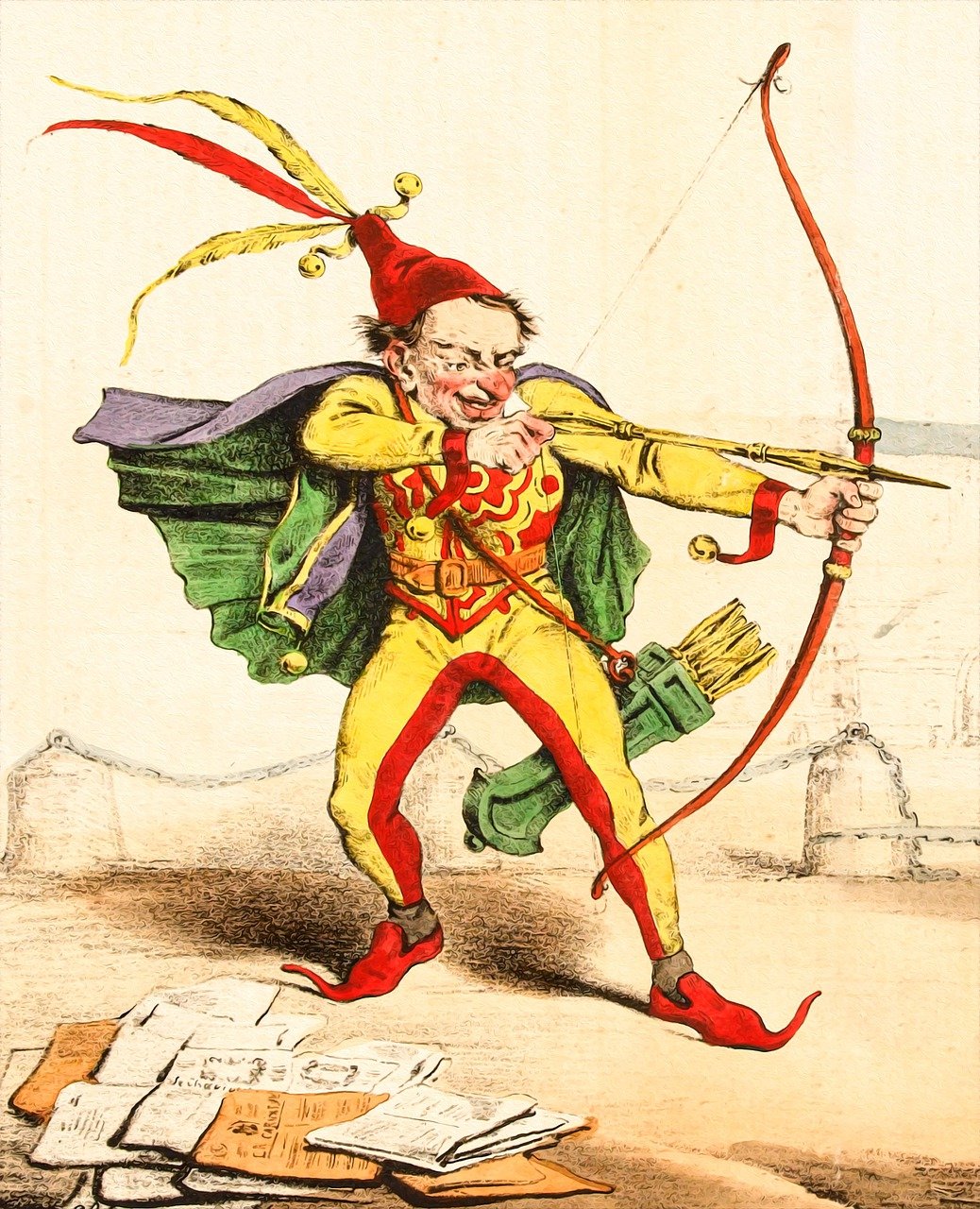Painful stories happen to all of us. A marriage or relationship goes sour. A job…

STOP in the name of love
Pretty much every one of us remembers an experience of being shamed. And we’ll do anything to avoid being engulfed in those burning flames of humiliation ever again. Unfortunately, people from so-called leaders to so-called lovers use shame as a weapon to exert power over us. Yet it’s a prison of our own making because shame only exists in our memory. Stop in the name of love is about freeing ourselves from the past and reclaiming our present power within. While it’s a simple practice, it’s not always easy — but it’s totally worth it.
We didn’t start the fire
There’s an important difference between guilt and shame. We feel guilt when we do something wrong. We feel shame when we believe there’s something wrong within us.
According to shame researcher and author, Brene Brown, shame is “the most powerful master emotion. It’s the fear that we’re not good enough.” And we all have it.
We weren’t born this way. We were conditioned by those who seek to control our behavior.
We’ve seen and experienced it from parents and teachers to ministers and bosses — essentially, anyone who seeks to achieve a goal that requires the cooperation of others.
Obviously, not all people in these roles use shame to exert their power. True leaders choose a different way.
Power over vs. power with
Brene describes this difference as power over vs. power with.
Those who choose power over seek to control the thoughts and behaviors of others, often using shame as a tool. Those who choose power with seek to inspire and encourage others, recognizing and bringing out the best in their people. We can all sense the difference.
Teachers are a good universal example. We can all call to mind a teacher who shamed and humiliated us, like the one in my high school who used to swear at students in class and throw books at their heads. On the flipside, we can also remember a teacher who saw something magical in us and cultivated that through praise, encouragement, and kindness. Like my high school journalism teacher.
These incidents may seem insignificant now that we’re all happy, healthy, well-adjusted adults, right? Wrong!
Understanding triggers
Due to our brain’s negativity bias, we tend to remember and believe the negative over the positive.
When we’re wounded by a shaming incident, we can recall those details more accurately than we can remember what we ate for lunch yesterday.
These negative experiences remain active in our brain’s memory bank and can be triggered at the most inopportune times. That’s how shame becomes a prison of our own making. We’re constantly anxious and on the defense, consumed by people pleasing, controlling, perfectionism, and other behaviors in an effort to prevent us from feeling not good enough.
How do we free ourselves? We can start by practicing a concept called non-reaction.
Pause and breathe
Non-reaction is exactly what it sounds like. Instead of immediately reacting to a trigger, we practice building awareness of our typical trauma reaction (fight, flight, freeze, or fawn.)
the practice is to pause, breathe, and reflect on what’s going on inside of us before doing anything.
It’s important to note that ‘flight’ doesn’t always mean we run for the hills. Sometimes we can’t physically remove ourselves from a situation, so we may mentally remove ourselves from a situation by zoning out, a form of dissociation. Or we may ‘run’ from the feelings by using substances, like sugar, alcohol, or shopping, to distract or comfort ourselves.
The difference with non-reaction is that we remain present — which isn’t easy when we’re triggered. That’s where STOP comes in.
Unearthing power within
The acronym STOP is used to reinforce the process of non-reaction: Stop; Take a breath; Observe; Proceed.
While STOP takes just a few moments, its power is palpable. We immediately feel a shift in the energy within and around us. While it can be tough to resist our brain’s craving to react, the more we practice, the easier it gets. What’s really amazing is that triggers often stop triggering.
That’s how we STOP in the name of love and connect with a third type of power, our power within.
Pulling the weeds
While STOP is an effective in-the-moment intervention, we need to practice prevention to cultivate a stronger foundation of power within. That’s how we build our skills at not reacting to triggers. Just like keeping our body healthy by choosing nutritious foods, we can keep our mind healthy by choosing empowering beliefs.
That means proactively pulling out the weeds of negative conditioning implanted in our brains. Otherwise, these old mental weeds continue to pop into our present day experience, choking out the positive seeds we’re trying to grow.
For example, we might be in the middle of a family dinner or a team meeting at work. Someone says or does something that feels like a slap in the face.
Before we know it, STOP goes out the window and the weeds of our trauma response take over. Later, we’re beating ourselves up for reacting again.
Strengthen the core
We need to STOP that, too! These are called practices because we’re weeding out conditioned behaviors and growing new behaviors that don’t yet come naturally to us. With time and practice, they will.
Here are some ways we can strengthen our core of power within:
- Counseling and journaling both support us in identifying and healing negative conditioning and reconnecting with our innate worthiness.
- Regular meditation, even a few minutes a day, helps train our brain to be less reactive and more connected to our deeper source of wisdom.
- Using neuroplasticity by practicing positive affirmations or loving-kindness meditations, can help us rewire our brain’s negative conditioning.
These are all simple, not necessarily easy practices — but totally worth it. That is if we wish to free ourselves from shame triggers that steal our peace and joy.
It’s not you
Taking time to re-imagine our inner landscape shifts the energy we feel inside and around us.
As a bonus, it sucks the wind out of the sails of shame — because it releases us from the frightened people who still use it to exert power over others. In my experience, they eventually stop trying or move on to someone else.
It reminds me of that old break-up line, “it’s not you, it’s me.” While we may feel like someone is causing our painful reactions, shame is our issue — not anyone else’s.
That means it’s our responsibility to break up with, and say goodbye to, shame for good.
STOP in the name of love
That’s also where we realize our true power. Each time we remember to STOP in the name of love, we exercise our personal power within. And each time we choose a calmer response, we chip away at our old trauma reactions and slowly but surely rewire our brain.
As we delve deeper to challenge the sources of shame, we weaken our ties (and lies) with the past. As a bonus, we strengthen our connection with our always present (and true) power within.
Beneath all that destructive shame, we rediscover the roots of self-love and self-acceptance that are just waiting to blossom.
Want more Good Vibrations?
I’m a holistic life coach who specializes in expressive writing to nurture healing, insight, and creativity. Check out more inspirational articles at my blog, Good Vibrations. For more information about life coaching, visit my website at www.manifestwithmargrita.com. Or email me at CoachMargrita@gmail.com. I invite you to follow me on Instagram, Facebook, and LinkedIn, too!



